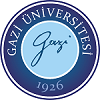
Send us your opinions, requests and evaluations.
P01: Adequate knowledge in mathematics, natural sciences, and engineering related to their own field; ability to use theoretical and applied knowledge in solving complex Civil Engineering problems.
P02: Ability to identify, define, formulate, and solve complex Civil Engineering problems; ability to select and apply appropriate analysis and modelling methods for this purpose.
P03: Ability to design a complex system, process, device, or product under realistic constraints and conditions to meet specific requirements; ability to apply modern design methods for this purpose.
P04: Ability to develop, select, and use modern techniques and tools necessary for the analysis and solution of complex problems encountered in Civil Engineering applications; ability to effectively use information technologies and at least one computer programming language.
P05: Ability to design experiments, conduct experiments, collect data, analyze results, and interpret them for the examination of complex Civil Engineering problems or research topics specific to Civil Engineering.
P06: Ability to work effectively in interdisciplinary and multidisciplinary teams.
P07: Ability to work individually.
P08: Ability to communicate effectively in Turkish, both orally and in writing; ability to write reports effectively and understand written reports.
P09: Proficiency in English grammar at the European Language Portfolio B1 level.
P10: Ability to prepare design and production reports, make effective presentations, and give and receive clear and understandable instructions.
P11: Awareness of the necessity of lifelong learning; ability to access information, follow developments in science and technology, and constantly renew oneself.
P12: Compliance with ethical principles, awareness of professional and ethical responsibilities.
P13: Knowledge about the standards used in Civil Engineering applications.
P14: Knowledge about practices in business life such as project management, risk management, and change management.
P15: Awareness of entrepreneurship, innovation; knowledge about sustainable development.
P16: Knowledge about the universal and societal impacts of engineering practices on health, environment, and safety, as well as the problems reflected in the engineering field of the era.
P17: Awareness of the legal consequences of engineering practices.

Send us your opinions, requests and evaluations.